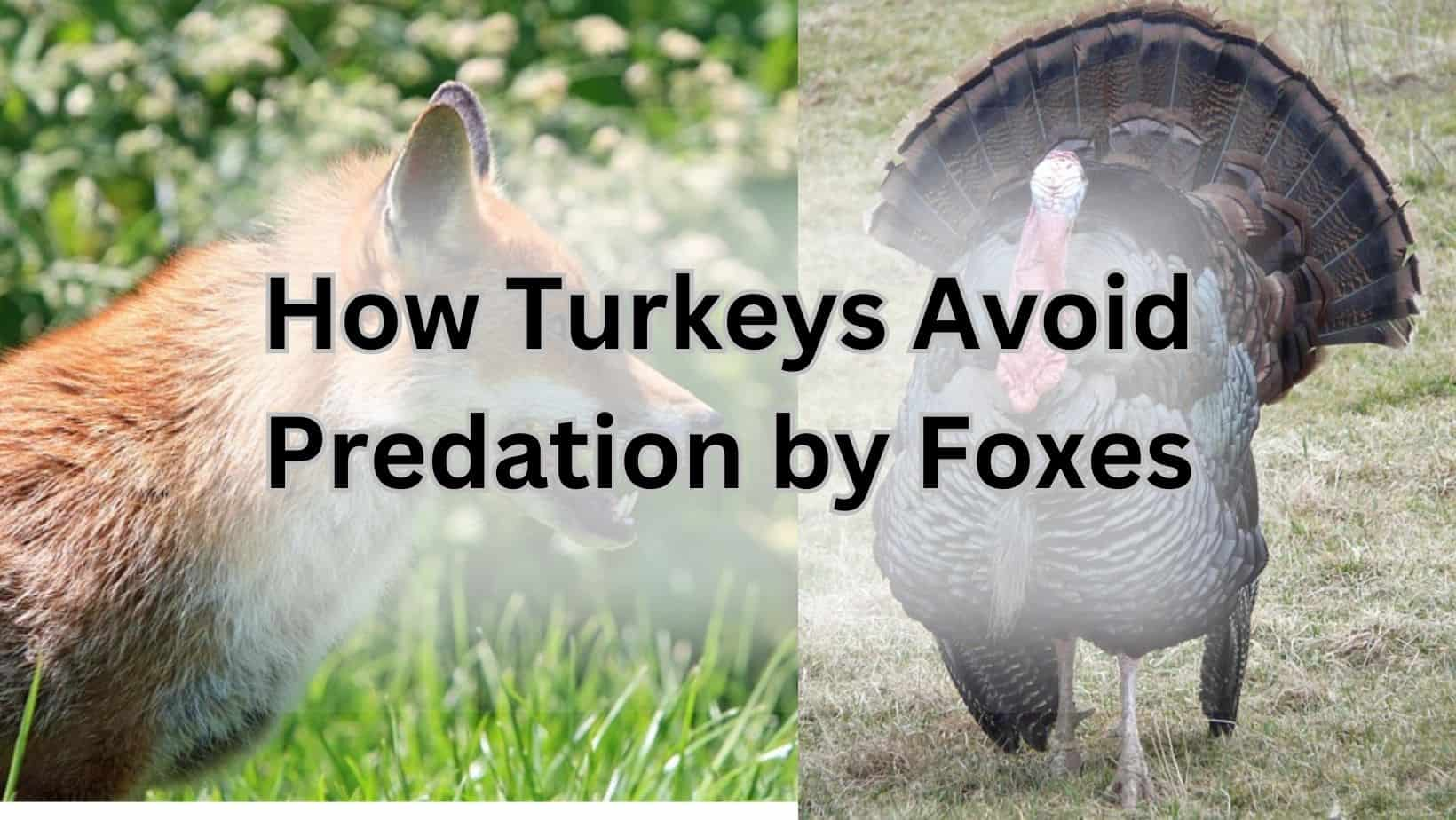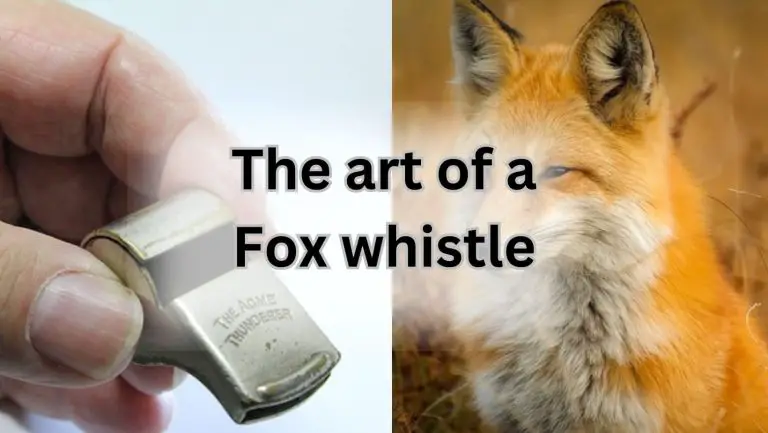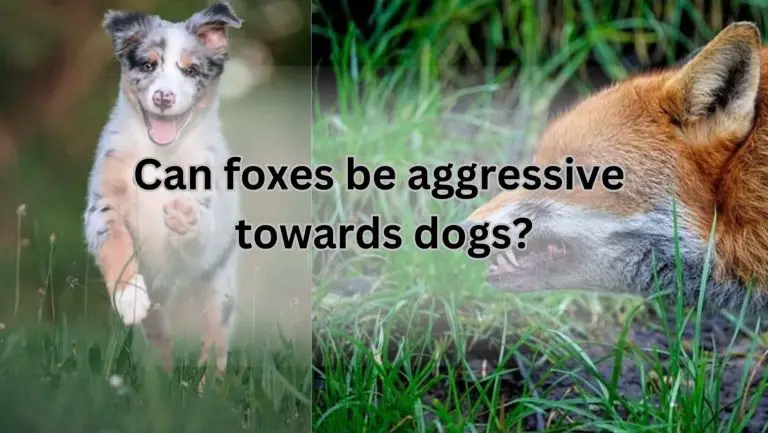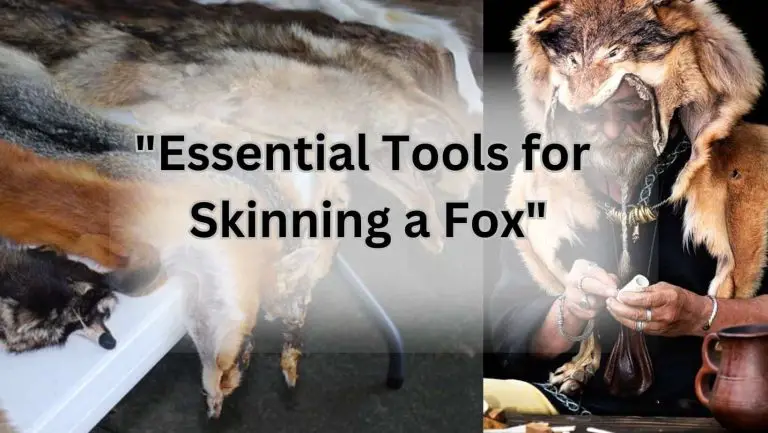Do Foxes Feast on Turkeys? Unveiling the Wild Truth

Do Foxes Eat Turkeys
Oh, dear reader, the age-old question of whether foxes feast on turkeys has intrigued many a wildlife enthusiast. The answer is a resounding yes! Foxes are known to be cunning predators that will not hesitate to make a meal out of a turkey if given the chance. But fear not, for there are ways to protect your beloved birds from these sly hunters. Stay tuned to learn more about the fascinating relationship between foxes and turkeys, and how you can keep your feathered friends safe from harm.
Turkey Predation
So, you’re wondering, do foxes eat turkeys? Well, let me tell you, my friend, foxes are indeed known to have a taste for these feathered fowls. Let’s dive into the world of turkey predation by foxes and see how these cunning creatures go about hunting their avian prey.
How Do Foxes Hunt Turkeys?
When it comes to hunting turkeys, foxes rely on their stealth and agility. These sly predators will stalk their prey, patiently waiting for the perfect moment to strike. With a burst of speed and precision, a fox can catch a turkey off guard and make it a meal. It’s a classic case of predator versus prey in the wild!
Impact of Foxes on Turkey Population
The presence of foxes in an area can have a significant impact on the turkey population. With their predatory nature, foxes can reduce the number of turkeys in a given area, affecting the overall ecosystem balance. It’s a tough world out there for turkeys when foxes are on the prowl.
Strategies to Protect Turkeys from Foxes
If you’re looking to protect your turkeys from foxes, there are a few strategies you can employ. Building secure enclosures, using scare tactics like noise or lights, and even introducing guardian animals like dogs can help deter foxes from preying on your turkeys. It’s all about outsmarting these wily predators and keeping your feathered friends safe!
### Ecological Impact
Do foxes eat turkeys? Well, let’s dive into the wild world of predator-prey dynamics to uncover the truth behind this feathery tale.
#### Role of Foxes in the Ecosystem
Foxes, with their cunning ways and sharp hunting skills, play a vital role in the ecosystem as predators. They help control the population of small mammals, insects, and even birds, maintaining a delicate balance in nature’s intricate web.
#### Relationship Between Foxes and Turkeys
When it comes to turkeys, foxes are known to be opportunistic predators. These sly creatures have been observed hunting and feasting on unsuspecting turkeys, especially young or injured ones. Turkeys, on the other hand, have developed strategies to evade fox attacks, such as flocking together for safety in numbers.
#### Balancing Predator-Prey Dynamics in Nature
In the wild, the dance between foxes and turkeys is a never-ending battle of survival. While foxes rely on turkeys as a food source, turkeys must stay vigilant and adapt to outsmart their cunning predators. This constant struggle for survival is what keeps the ecosystem in check, ensuring that no species overpopulates or becomes extinct.
So, the next time you hear a fox’s eerie cry in the night, remember the age-old dance of predator and prey that plays out in the wild. And if you happen to spot a turkey strutting proudly in the woods, know that it has survived another day in the game of survival. Nature’s drama is always unfolding, with foxes and turkeys playing their roles in the grand theater of life.
Behavioral Patterns
Fox and Turkey Behavior in the Wild
When it comes to the wild world of foxes and turkeys, it’s like a real-life game of cat and mouse, or should I say fox and turkey? Foxes are known to be cunning predators, always on the prowl for their next meal. Turkeys, on the other hand, are not as defenseless as they may seem. These birds are always on high alert, ready to flee at the first sign of danger.
How Turkeys Avoid Predation by Foxes
Turkeys have developed some clever tactics to avoid becoming a fox’s dinner. They are masters of camouflage, blending in with their surroundings to stay hidden from prying eyes. Turkeys also have a keen sense of hearing, allowing them to detect the slightest rustle in the bushes, giving them a head start to escape from a sneaky fox.
Hunting Techniques of Foxes for Turkeys
Foxes are skilled hunters, using a combination of stealth, speed, and agility to catch their prey. When it comes to hunting turkeys, foxes rely on their sharp senses to track down their feathered targets. They patiently stalk their prey, waiting for the perfect moment to strike. Once they spot a turkey, it’s game over for the unsuspecting bird.
Conservation Efforts
So, you’re wondering about the age-old question: do foxes eat turkeys? Well, let me tell you, my fellow wildlife enthusiast, the relationship between these two creatures is quite the predator-prey dance. But fear not, for there are conservation efforts in place to protect both the turkey populations and the cunning foxes.
Protecting Turkey Populations from Predators
When it comes to foxes and turkeys, it’s like a game of cat and mouse, or rather, fox and turkey. Foxes are known to be opportunistic predators, and turkeys are definitely on their menu. To protect turkey populations from these sly hunters, conservationists often employ strategies such as habitat management, predator control, and even the use of deterrents to keep the turkeys safe and sound.
Conservation Programs for Foxes and Turkeys
Conservation programs play a vital role in ensuring the survival of both foxes and turkeys in the wild. By monitoring populations, studying behaviors, and implementing protective measures, these programs aim to maintain a balance between predator and prey, allowing both species to thrive in their natural habitats.
Coexistence Strategies for Foxes and Turkeys
When it comes to coexisting with foxes and turkeys, it’s all about finding a harmonious balance in the ecosystem. By creating wildlife corridors, providing ample food sources, and implementing non-lethal deterrents, humans can help foster a peaceful relationship between these two creatures. After all, in the wild kingdom, it’s all about survival of the fittest, but a little help from us humans can go a long way in ensuring the survival of both foxes and turkeys.
Adaptations
So, you’re wondering if foxes have a taste for turkeys, huh? Well, let’s dive into the world of these cunning canines and their potential prey. When it comes to hunting turkeys, foxes have some interesting adaptations that help them in their pursuit of a feathered feast.
Physical Characteristics of Foxes for Hunting Turkeys
Foxes are known for their agility and speed, making them skilled hunters in the wild. Their sharp teeth and claws are perfect tools for catching and dispatching prey like turkeys. With keen senses of sight and smell, foxes can easily track down their feathered targets, making them formidable predators in the animal kingdom.
Turkey Adaptations to Avoid Fox Predation
On the other side of the coin, turkeys have their own set of adaptations to avoid becoming a fox’s next meal. These birds are known for their keen eyesight and ability to fly short distances to escape predators like foxes. They also have a knack for blending into their surroundings, making it harder for foxes to spot them in the wild.
Evolutionary History of Foxes and Turkeys
The evolutionary history of foxes and turkeys is a fascinating tale of predator and prey. Over time, both species have developed strategies to outsmart each other in the game of survival. While foxes rely on their speed and agility to catch turkeys, these birds have evolved to be more elusive and cautious when it comes to avoiding becoming a fox’s dinner.
Human Intervention
Do foxes eat turkeys? Well, that’s a question that often pops up in the minds of those concerned about the interactions between these two wild creatures. Human intervention plays a significant role in shaping the dynamics between foxes and turkeys in the wild.
Human Impact on Fox-Turkey Interactions
Humans have altered the natural habitats of both foxes and turkeys, leading to changes in their interactions. Deforestation, urbanization, and agricultural activities have all influenced the availability of food sources for these animals, affecting their predation habits.
Hunting Regulations for Foxes and Turkeys
Regulations on hunting foxes and turkeys also impact their populations and interactions. By controlling the number of foxes through hunting permits and managing turkey populations through conservation efforts, humans can indirectly influence the predator-prey relationship between these two species.
Human-Wildlife Conflict Resolution
When conflicts arise between foxes and turkeys, humans often step in to resolve the issues. Implementing measures such as installing fences, using scare tactics, and providing alternative food sources can help protect turkeys from fox predation. By finding ways to coexist peacefully with these wild animals, humans can mitigate conflicts and ensure the survival of both species.
Predation Dynamics
Do foxes eat turkeys? Well, let’s dive into the intriguing world of predator-prey relationships in the wild. Foxes, being opportunistic predators, have been known to target turkeys as part of their diet. The interaction between these cunning foxes and the unsuspecting turkeys is a fascinating dance of survival in the wilderness.
Factors Influencing Fox Predation on Turkeys
When it comes to foxes munching on turkeys, various factors come into play. The availability of food sources, the size and health of the turkey population, and the hunting skills of the foxes all contribute to the predation dynamics between these two species. It’s a delicate balance of nature at work.
Seasonal Variations in Fox-Turkey Interactions
As the seasons change, so do the interactions between foxes and turkeys. During the breeding season, turkeys may be more vulnerable to fox predation as they focus on courtship and nesting. In contrast, during the winter months, when food is scarce, foxes may be more aggressive in hunting turkeys for sustenance.
Impact of Habitat Loss on Predator-Prey Relationships
Habitat loss due to human encroachment can also impact the predator-prey relationships between foxes and turkeys. As natural habitats shrink, foxes may be forced to venture closer to human settlements in search of food, increasing the likelihood of encounters with domestic turkeys.
Research Findings
9.1 Studies on Fox Predation Behavior towards Turkeys
So, you’re wondering if those sly foxes have a taste for turkey dinner, huh? Well, let me tell you, the research findings on fox predation behavior towards turkeys might surprise you! Scientists have observed that foxes do indeed prey on turkeys in the wild, especially when they are looking for a hearty meal. These cunning canids have been known to sneak up on unsuspecting turkeys and make a quick meal out of them. It’s a tough world out there for our feathered friends!
9.2 Scientific Insights on Fox-Turkey Ecology
Now, let’s talk about the fascinating relationship between foxes and turkeys in the wild. Studies have shown that foxes play a crucial role in controlling turkey populations by preying on them. This predator-prey dynamic is a natural part of the ecosystem, helping to maintain a balance in the animal kingdom. It’s a tough reality, but it’s all part of nature’s grand plan!
9.3 Conservation Implications of Research on Fox-Turkey Interactions
When it comes to conservation, understanding the interactions between foxes and turkeys is key. By studying how fox predation affects turkey populations, conservationists can develop strategies to protect these vulnerable birds. From implementing predator control measures to creating safe habitats for turkeys, there are ways to help these birds thrive in the face of fox predation. It’s a delicate dance between predator and prey, but with the right knowledge and action, we can ensure the survival of these magnificent creatures.
Conclusion
So, there you have it folks! Foxes and turkeys have a complex relationship in the wild, with foxes being natural predators of turkeys. Understanding the predator-prey dynamics between these two animals is crucial for maintaining a healthy ecosystem. As a Canid Wild Life Lover with 20 years of experience, I can attest to the importance of studying the interactions between foxes and turkeys to ensure the survival of both species.
Summary of Fox-Turkey Relationship
When it comes to the food chain, foxes are known to hunt and eat turkeys as part of their diet. Turkeys, on the other hand, need to be wary of foxes to avoid becoming a tasty meal. This predator-prey relationship is a natural part of the ecosystem and plays a vital role in maintaining balance in the wild.
Importance of Understanding Predator-Prey Dynamics
By studying the predation habits of foxes and the feeding behavior of wild turkeys, researchers can gain valuable insights into the intricate web of interactions between predators and prey. This knowledge is essential for conservation efforts and wildlife management strategies aimed at protecting both foxes and turkeys.
Future Directions for Research on Foxes and Turkeys
As we look to the future, it is crucial to continue researching the interactions between foxes and turkeys to better understand how these animals coexist in the wild. By exploring new methods to prevent foxes from preying on turkeys and implementing natural ways to deter predators, we can help ensure the survival of both species for generations to come.




